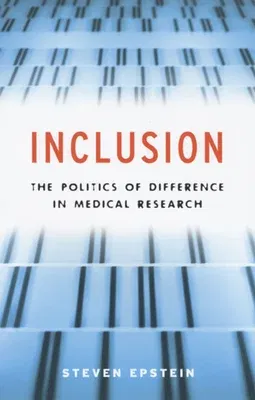Steven Epstein
(Author)Inclusion: The Politics of Difference in Medical ResearchPaperback, 1 June 2009

Qty
1
Turbo
Ships in 2 - 3 days
Only 2 left
Free Delivery
Cash on Delivery
15 Days
Free Returns
Secure Checkout

Part of Series
Chicago Studies in Practices of Meaning
Print Length
432 pages
Language
English
Publisher
University of Chicago Press
Date Published
1 Jun 2009
ISBN-10
0226213102
ISBN-13
9780226213101
Description
Product Details
Author:
Book Format:
Paperback
Country of Origin:
US
Date Published:
1 June 2009
Dimensions:
22.4 x
14.58 x
2.29 cm
ISBN-10:
0226213102
ISBN-13:
9780226213101
Language:
English
Pages:
432
Publisher:
Weight:
517.09 gm